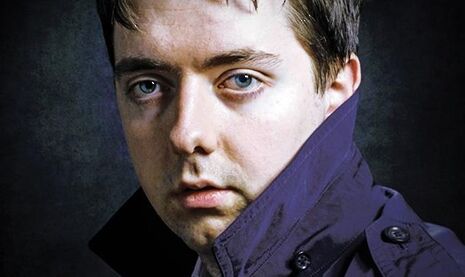Opera: Don Giovanni
Imogen Sebba extols a superb production of Mozart’s great opera

There is absolutely no reason to be worried about Don Giovanni. I was convinced of this from the outset: an atmospheric set, a tense, exciting overture, and the knowledge that the cast backstage and orchestra below were bursting with talent all suggested that it’s in the safest of hands.
Musically, it was virtually flawless. Conductor Patrick Milne deserves the highest of accolades not only for his cast achieving such a high standard across the board (even if in moments they got somewhat ahead of his beat), but for his multi-tasking in the pit playing continuo to an easily professional standard. Don Giovanni is bursting with principal roles, and all eight of them were joys to watch in their own right. The chorus was also a real strength of the production, balancing perfectly being in character with being in the background when necessary.
Of the soloists, the men certainly had the limelight in the first act: Henry Hawkesworth opened as a charming Leporello, a comic tour-de-force on his own and the perfect foil for the scheming Don Giovanni. His catalogue aria trod the delicate line between vulgar and ridiculous with ease. The permanently swaggering Michael Craddock in the title role never seemed challenged by a single note.
And with the second act, the women really come into their own: in particular, Donna Anna’s (Billie Robson) second aria was genuinely beautiful, with exquisite control and piercing power on indulgent passages and runs alike. For sheer dexterity, Sophie Horrocks’ Zerlina must be commended for switching so effectively between an affectation of innocence and a sound with such body and conviction. These two distinct sides are, however, more problematic for her character.
Much of the plot is deliberately ambiguous. But the one given is that Don Giovanni alone is punished, and the rest are left, though traumatised, in peace. So when Zerlina is so flirtatious in her first encounter alone with him, it’s somewhat troubling. When Donna Anna leads him by the hand into her house, then lies to the overwhelmingly earnest Don Ottavio, Don Giovanni can’t be seen as the out-and-out villain of the sort that gets dragged down to hell by a man he murdered. Such is the strength of the anti-heroes in this opera that, on some of Donna Elvira’s entrances, it really does feel like she’s spoiling the fun.
Yes, I have concerns. But it’s concern that makes for three-dimensional opera, which this undeniably is. Artistically, though, everyone involved has given the absolute upper limit of their effort, and in the face of so much talent and such great vision, concern will never turn to worry.
 Lifestyle / The woes of intercollegiate friendships8 May 2025
Lifestyle / The woes of intercollegiate friendships8 May 2025 Lifestyle / A beginners’ guide to C-Sunday1 May 2025
Lifestyle / A beginners’ guide to C-Sunday1 May 2025 News / Angela Rayner could intervene to stop Trinity ‘mothballing’ planned affordable homes site7 May 2025
News / Angela Rayner could intervene to stop Trinity ‘mothballing’ planned affordable homes site7 May 2025 News / Graduating Cambridge student interrupts ceremony with pro-Palestine speech3 May 2025
News / Graduating Cambridge student interrupts ceremony with pro-Palestine speech3 May 2025 Features / The quiet saboteur: when misogyny comes from within7 May 2025
Features / The quiet saboteur: when misogyny comes from within7 May 2025





